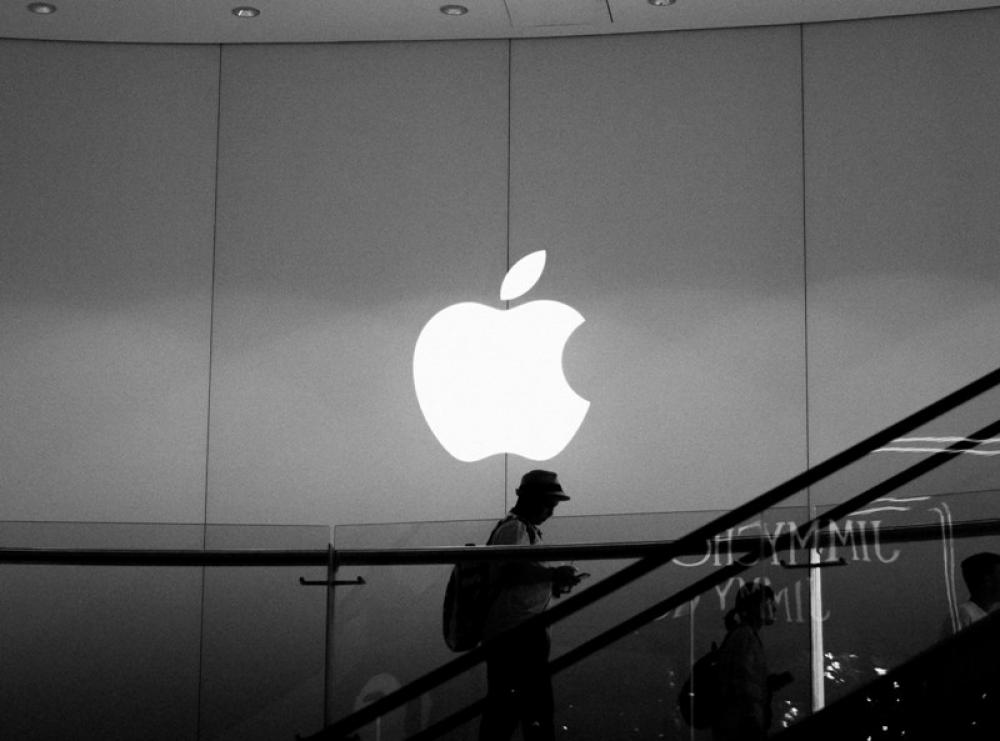Just Earth News | @justearthnews | 22 Mar 2024, 03:27 am Print
 Apple
Apple Photo Courtesy: Unsplash
The US Justice Department, joined by 16 other state and district attorneys general, filed a civil antitrust lawsuit against Apple for monopolisation or attempted monopolisation of smartphone markets in violation of Section 2 of the Sherman Act.
The complaint, filed in the U.S. District Court for the District of New Jersey, alleges that Apple illegally maintains a monopoly over smartphones by selectively imposing contractual restrictions on, and withholding critical access points from, developers.
"Apple undermines apps, products, and services that would otherwise make users less reliant on the iPhone, promote interoperability, and lower costs for consumers and developers. Apple exercises its monopoly power to extract more money from consumers, developers, content creators, artists, publishers, small businesses, and merchants, among others," US Department of Justice said in a statement.
Through this monopolisation lawsuit, the Justice Department and state Attorneys General are seeking relief to restore competition to these vital markets on behalf of the American public.
“Consumers should not have to pay higher prices because companies violate the antitrust laws,” said Attorney General Merrick B. Garland. “We allege that Apple has maintained monopoly power in the smartphone market, not simply by staying ahead of the competition on the merits, but by violating federal antitrust law. If left unchallenged, Apple will only continue to strengthen its smartphone monopoly. The Justice Department will vigorously enforce antitrust laws that protect consumers from higher prices and fewer choices. That is the Justice Department’s legal obligation and what the American people expect and deserve.”
“No matter how powerful, no matter how prominent, no matter how popular — no company is above the law,” said Deputy Attorney General Lisa Monaco. “Through today’s action, we reaffirm our unwavering commitment to that principle.”
“When corporations engage in anticompetitive conduct, the American people and our economy suffer,” said Acting Associate Attorney General Benjamin C. Mizer. “Today’s action against Apple sends a strong signal to those seeking to box out competitors and stifle innovation — that the Justice Department is committed to using every tool available to advance economic justice and root out anticompetitive practises, wherever they arise.”
“For years, Apple responded to competitive threats by imposing a series of “Whac-A-Mole” contractual rules and restrictions that have allowed Apple to extract higher prices from consumers, impose higher fees on developers and creators, and to throttle competitive alternatives from rival technologies,” said Assistant Attorney General Jonathan Kanter of the Justice Department’s Antitrust Division. “Today’s lawsuit seeks to hold Apple accountable and ensure it cannot deploy the same, unlawful playbook in other vital markets.”
As alleged in the complaint, Apple has monopoly power in the smartphone and performance smartphones markets, and it uses its control over the iPhone to engage in a broad, sustained, and illegal course of conduct.
This anti-competitive behaviour is designed to maintain Apple’s monopoly power while extracting as much revenue as possible.
The complaint alleges that Apple’s anticompetitive course of conduct has taken several forms, many of which continue to evolve today, including
Blocking Innovative Super Apps. Apple has disrupted the growth of apps with broad functionality that would make it easier for consumers to switch between competing smartphone platforms.
Suppressing Mobile Cloud Streaming Services. Apple has blocked the development of cloud-streaming apps and services that would allow consumers to enjoy high-quality video games and other cloud-based applications without having to pay for expensive smartphone hardware.
Excluding Cross-Platform Messaging Apps. Apple has made the quality of cross-platform messaging worse, less innovative, and less secure for users so that its customers have to keep buying iPhones.
Diminishing the Functionality of Non-Apple Smartwatches. Apple has limited the functionality of third-party smartwatches so that users who purchase the Apple Watch face substantial out-of-pocket costs if they do not keep buying iPhones.
Limiting Third Party Digital Wallets. Apple has prevented third-party apps from offering tap-to-pay functionality, inhibiting the creation of cross-platform third-party digital wallets.
The complaint also alleges that Apple’s conduct extends beyond these examples, affecting web browsers, video communication, news subscriptions, entertainment, automotive services, advertising, location services, and more.
Apple has every incentive to extend and expand its course of conduct to acquire and maintain power over next-frontier devices and technologies.
For over a century, the Department has enforced the antitrust laws against illegal monopolies, deploying the Sherman Act to unfetter markets and restore competition. As alleged in the complaint, the Department is seeking equitable relief on behalf of the American public to redress Apple’s long-running, pervasive anticompetitive conduct.
Apple Inc. is a publicly traded company incorporated in California and headquartered in Cupertino, California. In fiscal year 2023, Apple generated annual net revenues of $383 billion and net income of $97 billion.
Apple’s net income exceeds any other company in the Fortune 500 and the gross domestic products of more than 100 countries.
Apple's stock drops
Following the latest development, Apple's stock reportedly dropped 3.6 percent on Thursday (March 22, 2024) to about $172.27 a share just before noon.
European Commission fined Apple over USD 2 billion over music streaming
The European Commission has fined Apple over €1.8 billion ($2 billion) for abusing its dominant position on the market for the distribution of music streaming apps to iPhone and iPad users (‘iOS users') through its App Store.
In particular, the Commission found that Apple applied restrictions on app developers preventing them from informing iOS users about alternative and cheaper music subscription services available outside of the app (‘anti-steering provisions').
"This is illegal under EU antitrust rules," read a statement issued by EC.
- YouTube Premium Lite just got a massive boost — Know all details
- Trump claims he stopped 35 million deaths by stopping India-Pakistan war
- Entrepreneur decides to shut down 16-year old eatery in London, cites harassment and Pakistani attacks
- Ubisoft bets big on Assassin’s Creed with strategic leadership revamp
- US: Abducted Sikh man found dead close to Lake Berryessa





-1763561110.jpg)
